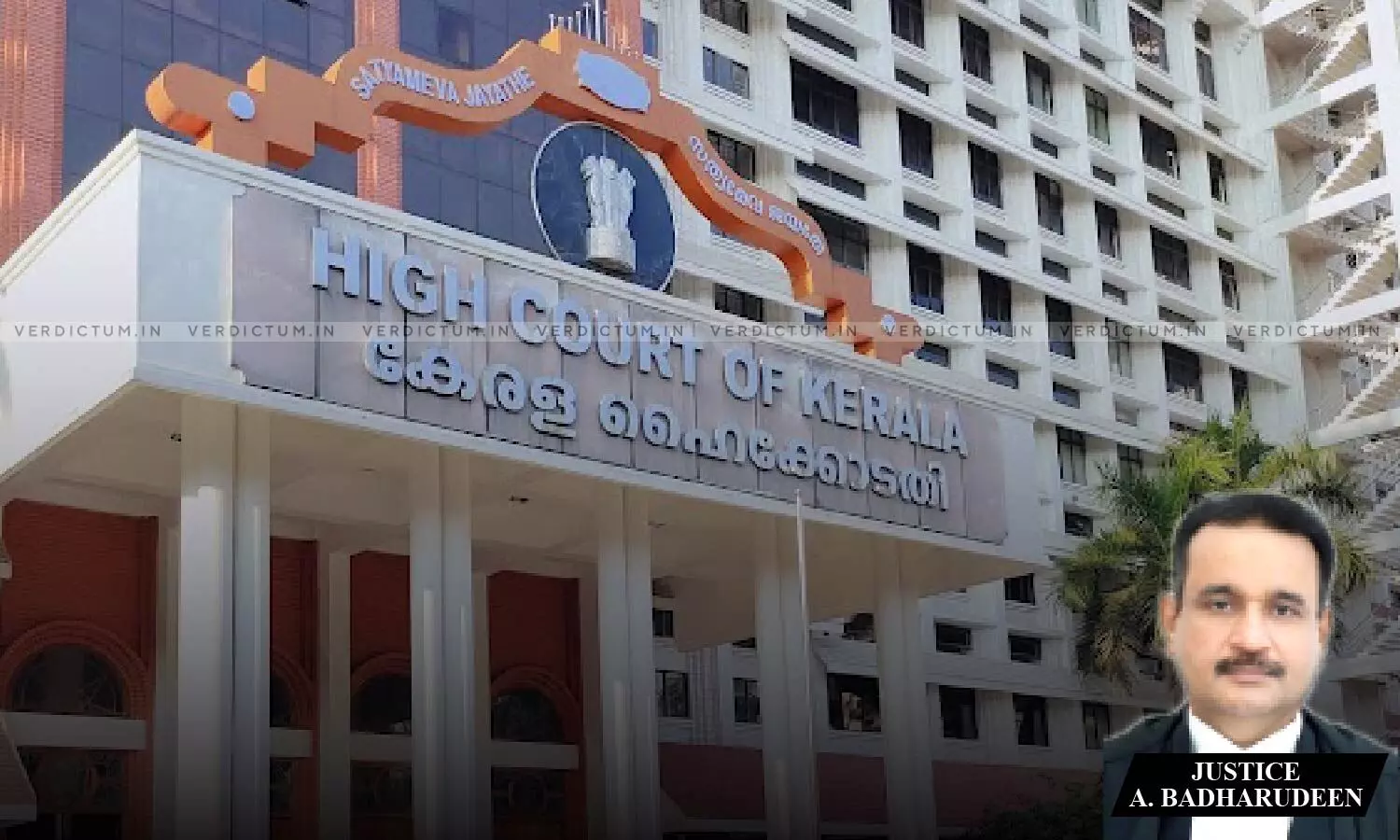
Calling Woman ‘Prostitute’ In Her Absence In Front Of Third Parties Does Not Constitute Offence U/S 509 IPC: Kerala HC
 |
|The Kerala High Court observed that calling a woman a ‘prostitute’ in her absence in front of third parties does not constitute an offence under Section 509 of the Indian Penal Code.
The Court quashed criminal proceedings against the petitioners, who the complainant accused of making defamatory remarks with the intention to insult her modesty in and out of the premises of the flat building, where the petitioners and the complainant were residing, allegedly stating that the defacto complainant was a prostitute.
A Single Bench of Justice A. Badharudeen observed, “Even though the statement alleged to be spoken by the accused persons was not intending to be heard by the defacto complainant or seen by her, but to third parties, it may attract some other offence, the same itself would not constitute an offence dealt in second part of Section 509 of IPC prima facie. That apart, this case has emanated from a difference of opinion in a residence association where the defacto complainant and the accused are members.”
Advocate John Sebastian Ralph V appeared for the petitioners, while Senior Public Prosecutor Renjit George represented the respondents.
A petition was filed under Section 482 of the CrPC to quash criminal proceedings against the petitioners. They pressed the point that even if the words alleged to be stated by them were defamatory, the same would not attract offence under Section 509 of the IPC.
The High Court had to determine that while referring to the complainant as a prostitute before the inmates of the flat and nearby shop owners, whether the petitioners intruded upon the privacy of the complainant.
In order to bring home an offence punishable under Section 509 of the IPC or Section 79 of the BNS, the Court explained that the utterance of the words must be intended to be heard by the woman.
“The second part provides that the above overt acts done with intention to intrude upon the privacy of such a woman. Here, the first part of the offence is not at all made out since the defacto complainant has no case that the accused persons used the derogative text directly to the defacto complainant either to be heard or to be seen by her and the allegation is that the accused stated so to the inmates of the flat and nearby shop owners and the defacto complainant has no direct knowledge regarding the same,” the Court remarked.
The Court reiterated the decision in xxxx v. State of Kerala (2024 KHC Online 584), wherein it was held that mere utterance of unpleasant or abusive words without an intention either to insult the modesty of the woman or to intrude upon the privacy of such woman would not attract offence under Section 509 of the IPC.
Consequently, the Court held, “In view of the matter, the prayer for quashment is liable to succeed. Therefore, I am inclined to allow this petition.”
Accordingly, the High Court allowed the petition.
Cause Title: Anson I.J. & Ors. v. State Of Kerala & Ors. (Neutral Citation: 2024:KER:72492)
Appearance:
Petitioners: Advocates John Sebastian Ralph V, Vishnu Chandran, Ralph Reti John, Giridhar Krishna Kumar, Appu Babu, Vishnumaya M.B., Geethu T.A. and Apoorva Ramkumar
Respondents: Senior Public Prosecutor Renjit George; Advocates P.V. Saritha Venugopal and Basil Mathew